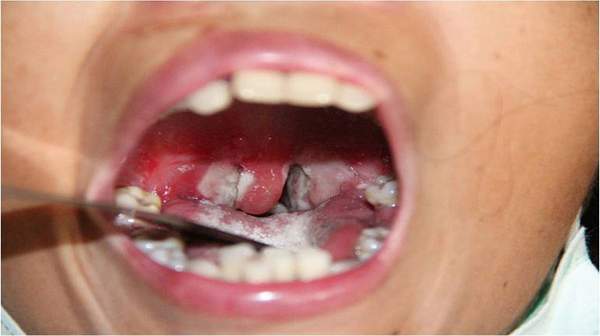
What's in this article?
Diphtheria is a bacterial infection that affects the membranes of the throat and nose. Although it spreads easily, diphtheria can be prevented through the use of vaccines. If left untreated, diphtheria can cause severe damage to your kidneys, nervous system, and heart. According to the Mayo Clinic, diphtheria is fatal in about 10 percent of cases.
Diphtheria is extremely rare in the United States and other developed countries, thanks to widespread vaccination against the disease.
Medications are available to treat diphtheria. However, in advanced stages, diphtheria can damage your heart, kidneys and nervous system. Even with treatment, diphtheria can be deadly
Causes
Diphtheria spreads through respiratory droplets (such as from a cough or sneeze) of an infected person or someone who carries the bacteria but has no symptoms.
The bacteria most commonly infects your nose and throat. The throat infection causes a gray to black, tough, fiber-like covering, which can block your airways. In some cases, diphtheria infects your skin first and causes skin lesions.
Once you are infected, the bacteria make dangerous substances called toxins. The toxins spread through your bloodstream to other organs, such as the heart and brain, and cause damage.
Because of widespread vaccination (immunization) of children, diphtheria is now rare in many parts of the world.
Risk factors for diphtheria include crowded environments, poor hygiene, and lack of immunization.
up to 3 percent of people who get diphtheria die of it. The rate is higher for children under 15.
Preventing Diphtheria
With the use of antibiotics and vaccines, diphtheria is not only treatable, but preventable as well.
The vaccine for diphtheria is given in a single shot (along with vaccines for pertussis and tetanus) that is called DTaP. The DTaP vaccine is administered in a series at 2, 4, and 6 months of age, and then again at around 1 and 4 years of age. In rare cases, a child might have an allergic reaction to the vaccine. This can result in seizures or hives that later go away.
Because vaccines last for only 10 years, you’ll want to have your child vaccinated again around the age of 12 to maintain diphtheria protection. For adults, it’s recommended that you get a combined diphtheria and tetanus booster called the Td vaccine to maintain your protection.
Symptoms
Diphtheria signs and symptoms usually begin two to five days after a person becomes infected and may include:
- A thick, gray membrane covering your throat and tonsils
- A sore throat and hoarseness
- Swollen glands (enlarged lymph nodes) in your neck
- Difficulty breathing or rapid breathing
- Nasal discharge
- Fever and chills
- Malaise
In some people, infection with diphtheria-causing bacteria causes only a mild illness — or no obvious signs and symptoms at all. Infected people who remain unaware of their illness are known as carriers of diphtheria, because they can spread the infection without being sick themselves.
Recognizing the Signs of Diphtheria
Signs of diphtheria often appear two to five days after infection. In some cases, you could be a carrier of C. diphtheriae and have only mild symptoms (that are similar to the common cold) or no symptoms at all. The most common and visible symptom is a thick, gray coating on your throat and tonsils. Other common symptoms include:
- difficulty breathing
- swollen lymph nodes in the neck
- chills
- fever
- a loud, barking cough
- bluish skin
- a sore throat
- drooling
- a general feeling of uneasiness or discomfort





